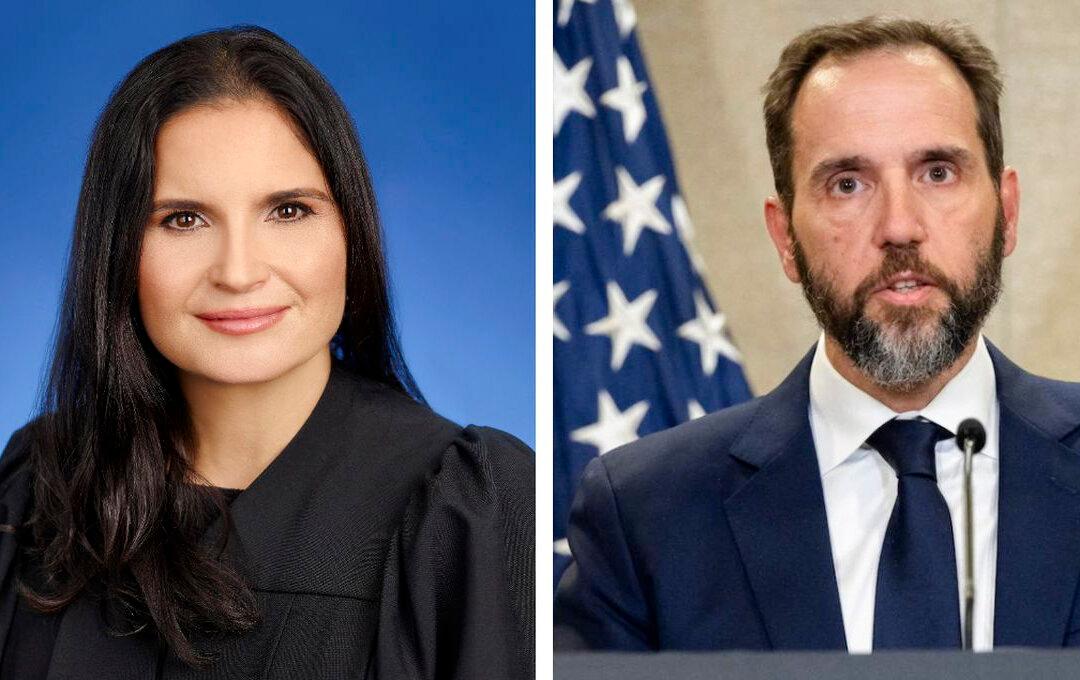The federal judge overseeing one of the criminal cases against former President Donald Trump has made the unusual decision to open up an upcoming hearing to outside parties as she considers whether special counsel Jack Smith’s appointment was valid.
U.S. District Judge Aileen Cannon, an appointee of President Trump, said on June 4 that three outside experts will be able to make their cases for up to 30 minutes each during the hearing, which is slated to take place in federal court in Florida on June 21.





